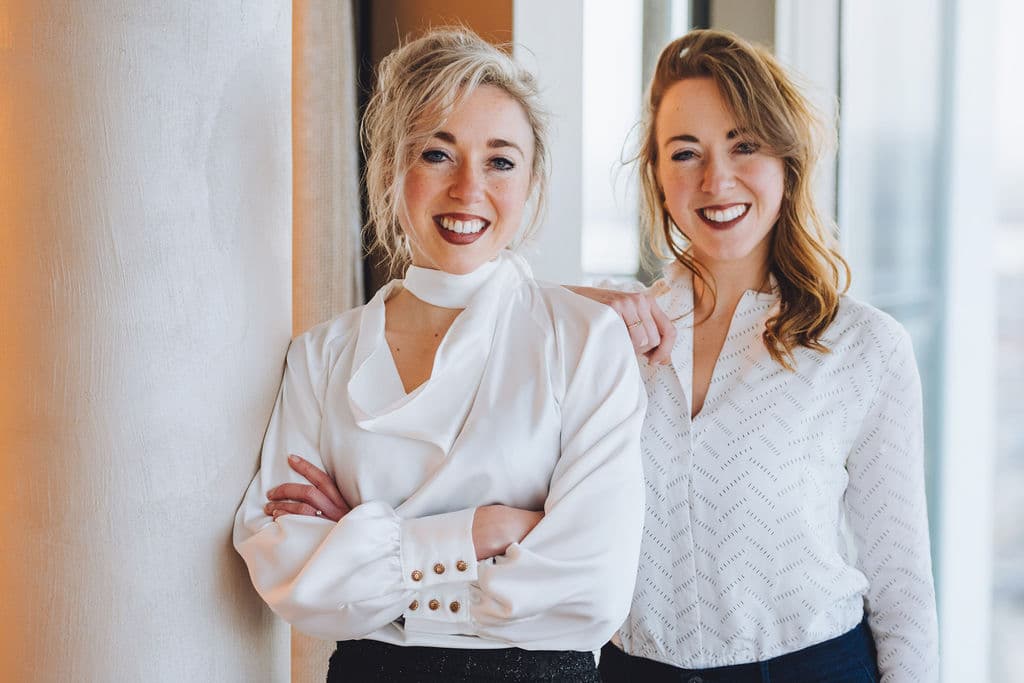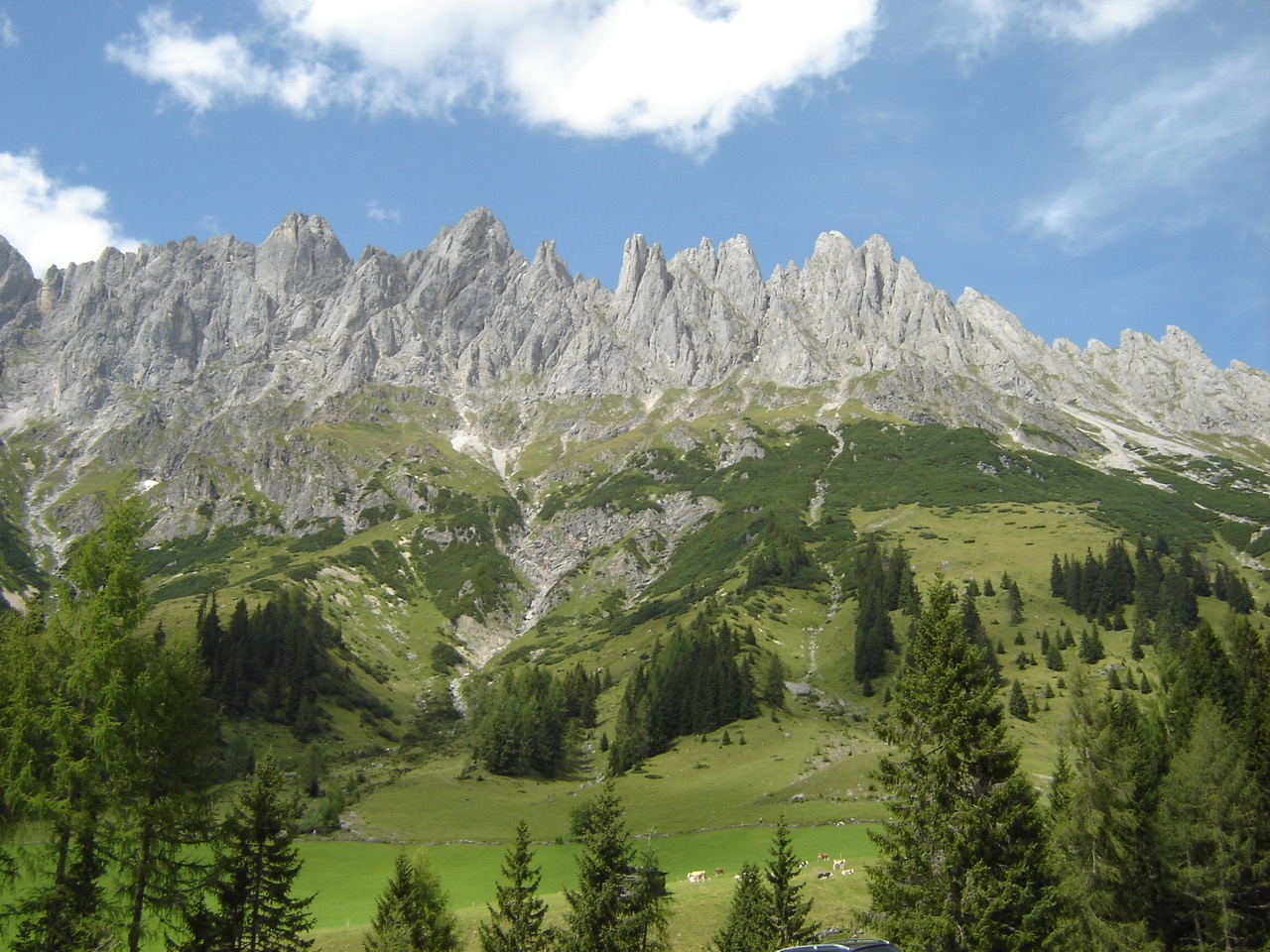When you think of Austria, do you start humming The Sound of Music? While the hills are alive, there’s so much more to explore! So grab your Melange and let’s schuss into it!
Austria: A Land of Captivating Diversity
Austria, a landlocked country nestled in the heart of Europe, is a captivating blend of breathtaking landscapes, rich traditions, and dynamic cultural influences.
From the snow-capped Alps to the bustling streets of Vienna, Austrian culture is a harmonious mix of history and modernity.
Timeless Traditions and Modern Living
Many people travel to Austria to experience its iconic traditions, such as the Vienna Opera Ball or festive Christmas markets.
Others are drawn by its rich history and a lifestyle centred around family-focused Sundays, leisurely meals, and outdoor activities in the Alpine regions.
Austria also has a deep love for dairy products, with its world-class cheese playing an integral role in its cuisine.
Discover Unforgettable Austria
Whether exploring the elegance of Vienna’s cafés or the cultural depth of its music and arts, Austrian culture offers a breathtaking journey through time, tradition, and modern life.
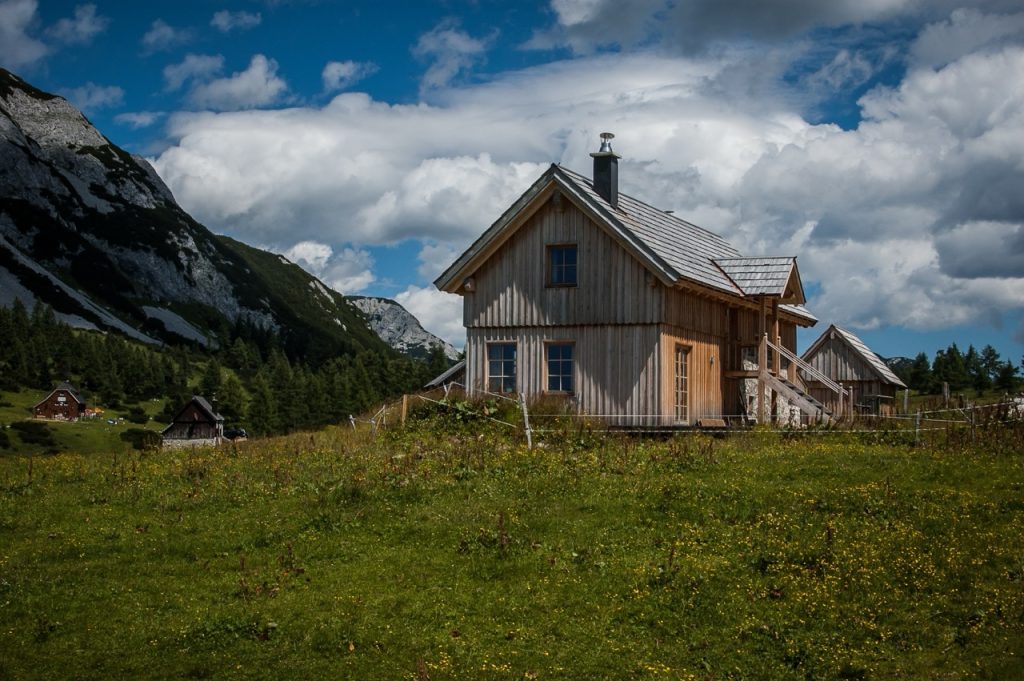
A Brief Overview of Austria
With a population of approximately nine million, it is home to a dynamic mix of urban centres and rural areas, each contributing to the country’s charm.
The Austrian population is highly concentrated in the cultural center cities like Vienna and Salzburg, yet the Alpine regions offer a quieter lifestyle rich in traditions and natural beauty.
Austria’s position at the crossroads of Europe has made it a hub for cultural diversity, blending influences from neighbouring countries like Hungary, Switzerland, the Czech Republic, and Germany.
Austria is renowned for its breathtaking landscapes, including the Alps, which attract visitors from around the world. These majestic mountains not only define the country’s scenery but also its culture, with traditions deeply rooted in alpine living.
The Official Language of Austria
German is the official language of Austria, but the version spoken here is distinct.
Known as Austrian German, the language includes unique words, phrases, and pronunciations that differentiate it from the standard German language used in Germany.
For instance, the German word Semmel in Austrian German refers to a bread roll, while in other regions, it might be called Brötchen.
While many Austrians are fluent in English, learning Austrian German is highly valued for those looking to engage deeply with Austrian people and customs.
Austrians value politeness in their social interactions, often marked by a warm “Grüß Gott” and maintaining respectful eye contact.
Regional Differences in Austria
Austria is known for its regional differences, where traditions, dialects, and culinary styles vary greatly.
The bustling capital city, Vienna, is a cultural centre, offering opera houses, museums, and a vibrant café scene, while the rural areas maintain age-old traditions like alpine farming and folk festivals.
For example, Tyrol is celebrated for its folk dance and yodelling, while Styria is renowned for its vineyards. These regional differences also extend to food, with each region having its specialties, such as Vorarlberg’s Käsknöpfle (a cheesy pasta dish).
Austrian Cuisine: A Culinary Journey
Austrian cuisine is a delectable mix of flavours influenced by its neighbours. Iconic dishes like Wiener Schnitzel and Kaiserschmarrn (a shredded pancake dessert) are staples of Austrian food culture.
The nation’s love for sweets is evident in desserts like Apfelstrudel and the world-famous Sacher Cake, which originated at the luxurious Hotel Sacher in Vienna. Austrians also enjoy hearty meals like Tafelspitz, a boiled beef dish served with horseradish.
Dining at traditional restaurants often provides a glimpse into Austrian hospitality, where meals are a time to connect with family and friends.
Whether you’re indulging in a rustic alpine meal or exploring fine dining in Vienna, Austrian cuisine is a feast for all the senses.
The Viennese Café Culture
The Viennese café is more than just a place to grab coffee; it’s a cultural institution. Austrians take great pride in their café culture, where sipping coffee and indulging in pastries is an art form.
Cafés like Café Central and Café Demel are steeped in history, often frequented by literary greats and philosophers like Ludwig Wittgenstein.
Signature drinks like Melange (similar to a cappuccino) and desserts such as Baicoli (traditional Venetian biscuits) exemplify the elegance of this tradition.
Spending time in a Viennese café offers a window into Austrian society, where life slows down, and meaningful conversations unfold over coffee and deliciousness.
Austrian Traditions and Festivals
Austria is rich in traditions, many of which are celebrated through vibrant festivals and traditional events. During the holiday season, the country’s famed Christmas markets light up cities with festive decorations, handcrafted goods, and delicious treats like roasted chestnuts.
The Vienna New Year’s Concert, performed by the Vienna Philharmonic Orchestra, is a globally celebrated tradition that showcases Austria’s deep connection to classical music.
Other notable events include the Salzburg Festival, which celebrates opera and theatre, and harvest festivals in the Alpine regions.
Austrian Music: Classical to Folk
Austria’s contribution to classical music is unparalleled. Composers like Mozart, Beethoven, and Strauss have left an indelible mark on the world of music.
The Vienna Opera Ball and performances at the Vienna State Opera are testaments to the nation’s enduring love for the arts.
Beyond classical, Austria’s folk traditions include unique instruments like the zither and Austrian customs such as yodelling. These elements continue to play a role in celebrations and festivals across the country.
The Spanish Riding School
The Spanish Riding School in Vienna is an iconic institution that showcases Austria’s equestrian heritage. Home to the graceful Lipizzaner stallions, the school is a blend of art and sport, offering mesmerizing performances.
The school’s history dates back to the Austro-Hungarian Empire, and today it stands as a symbol of Austrian precision and tradition.
Historical Influences on Austrian Culture
Austria’s modern identity owes much to its role in the Austro-Hungarian Empire (1867–1918). Ruled by the iconic Emperor Franz Joseph I, this dual monarchy united Austria, Hungary, and parts of Central and Eastern Europe into a vibrant hub of cultural and ethnic diversity.
The empire’s legacy lives on in Austria’s stunning architecture, rich cuisine, and multilingual society, a historic chapter that still shapes its charm today.
The Impact of the World Wars
The aftermath of World War I and World War II deeply affected Austrian society. Post-war neutrality allowed Austria to rebuild and focus on cultural preservation, becoming a beacon of peace in Europe.
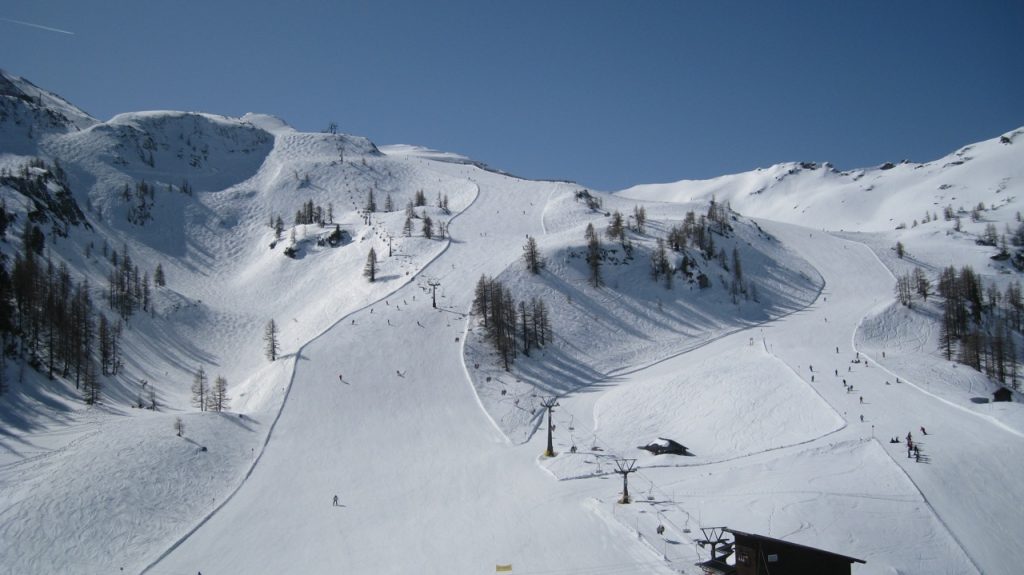
Austria: An Ideal Destination for Cultural Exchange
Life in Austria seamlessly weaves the charm of age-old traditions with the energy of modern living, creating an environment where cultural pride thrives alongside progress.
This unique balance makes Austria not only a wonderful place to live but also an ideal destination for cultural exchange.
For families and au pairs alike, it’s the perfect setting to build meaningful connections, immerse in rich traditions, and experience the beauty of Austrian life firsthand.
Austrian Au Pair Program: A Gateway to Cultural Exchange
The Austrian au pair program with Nina.care is so much more than just childcare, it’s a vibrant two-way cultural exchange fostering personal growth, meaningful connections and a deeper understanding of different ways of life.
Whether you’re a family hosting an Austrian au pair or becoming one, it’s a unique opportunity to create lasting memories, gain invaluable international experience and explore the charm of Austrian culture.
Hosting an Austrian Au Pair: A Piece of Austria in Your Home
For families, hosting an Austrian au pair brings Austria’s rich traditions and vibrant culture right into your home.
Children have the chance to learn Austrian German, perhaps explore delightful customs like cooking Kaiserschmarrn (a fluffy shredded pancake), and celebrate traditional holidays like Easter Sunday.
Hosting also allows families to share their own traditions, creating a dynamic cultural exchange that enriches daily life and fosters mutual understanding.
Beyond childcare, it’s an exciting way to expose your children to a global perspective while building meaningful connections.
Becoming an Au Pair in Austria: Immersion in a New World
Au pairs living with a host family in Austria will immerse themselves in a vibrant cultural experience while building lifelong relationships and improving their German language skills.
It’s not just about exploring Austria’s wonders, it’s a chance to grow personally, gain valuable international experience, and shake hands with a warm and welcoming community.
Key Details for Au Pairs and Host Families
For Au Pairs:
- Age range: 18–27 years, unmarried, without children.
- Basic German and English proficiency required.
- Placements last 6–12 months, with up to 30 hours of childcare and light household duties weekly.
- Benefits include accommodation, meals, pocket money (around €340/month) and much more.
For Host Families:
- Have at least one child under 18 at home and can provide a private room for the au pair.
- Create a welcoming environment by sharing your language and traditions.
- Support your au pair’s attendance in social or language classes to learn German, ensuring a fulfilling and enriching exchange.
Both families and au pairs can count on Nina.care for expert guidance. From matching participants to navigating legal requirements, Nina.care ensures a smooth and rewarding experience for everyone.
Exploring Austria Together
One of the joys of hosting an Austrian au pair or living in Austria as an au pair is the shared adventure of discovering the country’s treasures. Families and au pairs can bond over exploring iconic attractions in the host location.
Top 5 Must-See Things to Do and See in Austria
- Schönbrunn Palace, Vienna: Tour the opulent palace, explore its stunning gardens, and enjoy panoramic views from the Gloriette.
- Hallstatt: Visit the charming lakeside village, explore ancient salt mines, and take in spectacular alpine views from the Skywalk.
- Salzburg: Discover Mozart’s birthplace, the Hohensalzburg Fortress, and the Sound of Music landmarks in the historic Old Town.
- Austrian Alps: Enjoy world-class skiing, hiking, and breathtaking views at top resorts like St. Anton and Kitzbühel.
- Vienna State Opera: Experience world-class opera or ballet performances in one of the world’s most prestigious opera houses
Top 5 Things to Do with Your Austrian Au Pair in the Netherlands
If you’re hosting an Austrian au pair for example in the Netherlands, exploring Dutch traditions together is a fantastic way to bond and create lasting memories.
From cycling through scenic countryside to visiting iconic windmills and markets, these shared experiences showcase the best of Dutch culture.
- Visit Keukenhof Gardens: Explore the vibrant tulip fields and stunning floral displays in this iconic Dutch attraction.
- Cycle Through the Countryside: Rent bikes and enjoy a quintessential Dutch experience exploring windmills and picturesque villages.
- Discover Amsterdam’s Canals: Take a boat tour or stroll along the canals while visiting landmarks like the Anne Frank House.
- Try Stroopwafels at a Market: Share a warm stroopwafel at a local market and introduce your au pair to Dutch culinary delights.
- Explore Kinderdijk’s Windmills: Visit the UNESCO World Heritage site to admire historic windmills and learn about Dutch water management.
Interested in more? 11 of the best travel tips to do in the Netherlands
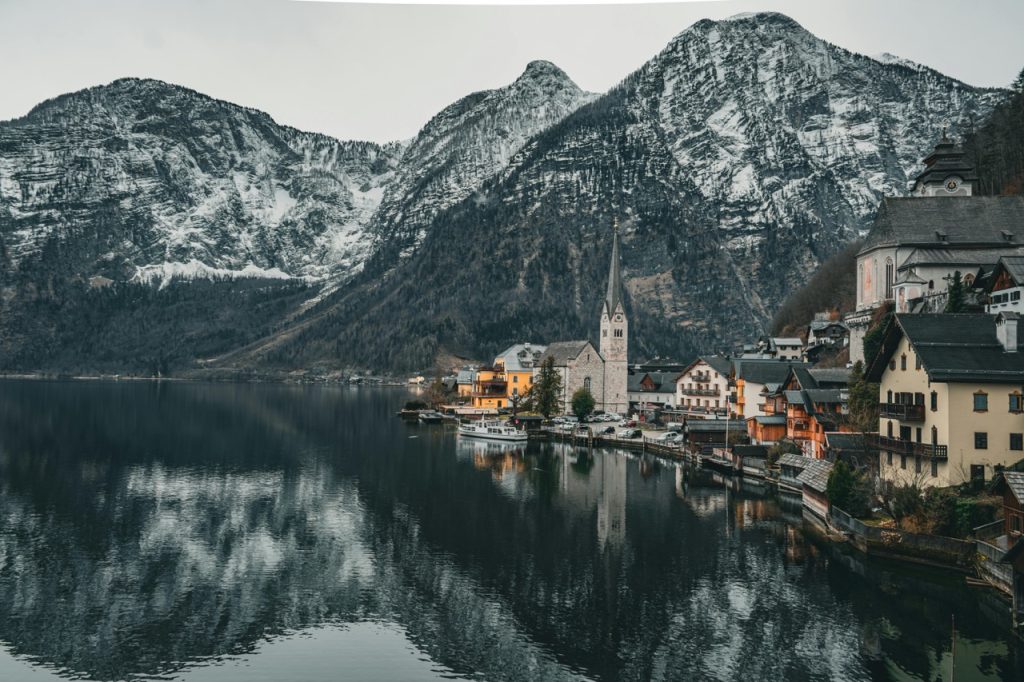
Nina.care: Making the Process Easy
Nina.care is your ultimate partner in finding the perfect match for both host families and au pairs.
With years of experience in arranging successful au pair placements, we ensure the process is smooth, secure, and rewarding for everyone involved.
For host families, we provide guidance on legal requirements, contracts, and matching with an au pair who complements your family’s unique needs.
For au pairs, we offer support in navigating visa applications, language courses, and settling into your new environment.
Nina.care is here to help you find the perfect au pair journey!
Conclusion: Dive Into the Heart of Austria
Austria isn’t just a destination, it’s an experience that immerses you in a world of culture, connection, and unforgettable traditions.
Imagine shaking hands with your host family, sharing stories over a warm Apfelstrudel, or drinking a schnaps at an après-ski bar after a day on the slopes.
Whether you’re hosting an Austrian au pair or stepping into Austria as one, this journey promises a perfect blend of adventure and cultural exchange.
From the elegance of Vienna’s cafés to the charm of Tyrolean traditions, Austria invites you to celebrate its vibrant spirit.
With the expert guidance of Nina.care, you can seamlessly embark on this enriching experience, whether you’re opening your home to an au pair or immersing yourself in Austrian culture.
So, why wait? Take the leap to Austria, build meaningful connections, and create memories that will stay with you long after you’ve said “Grüß Gott” to this incredible country.
